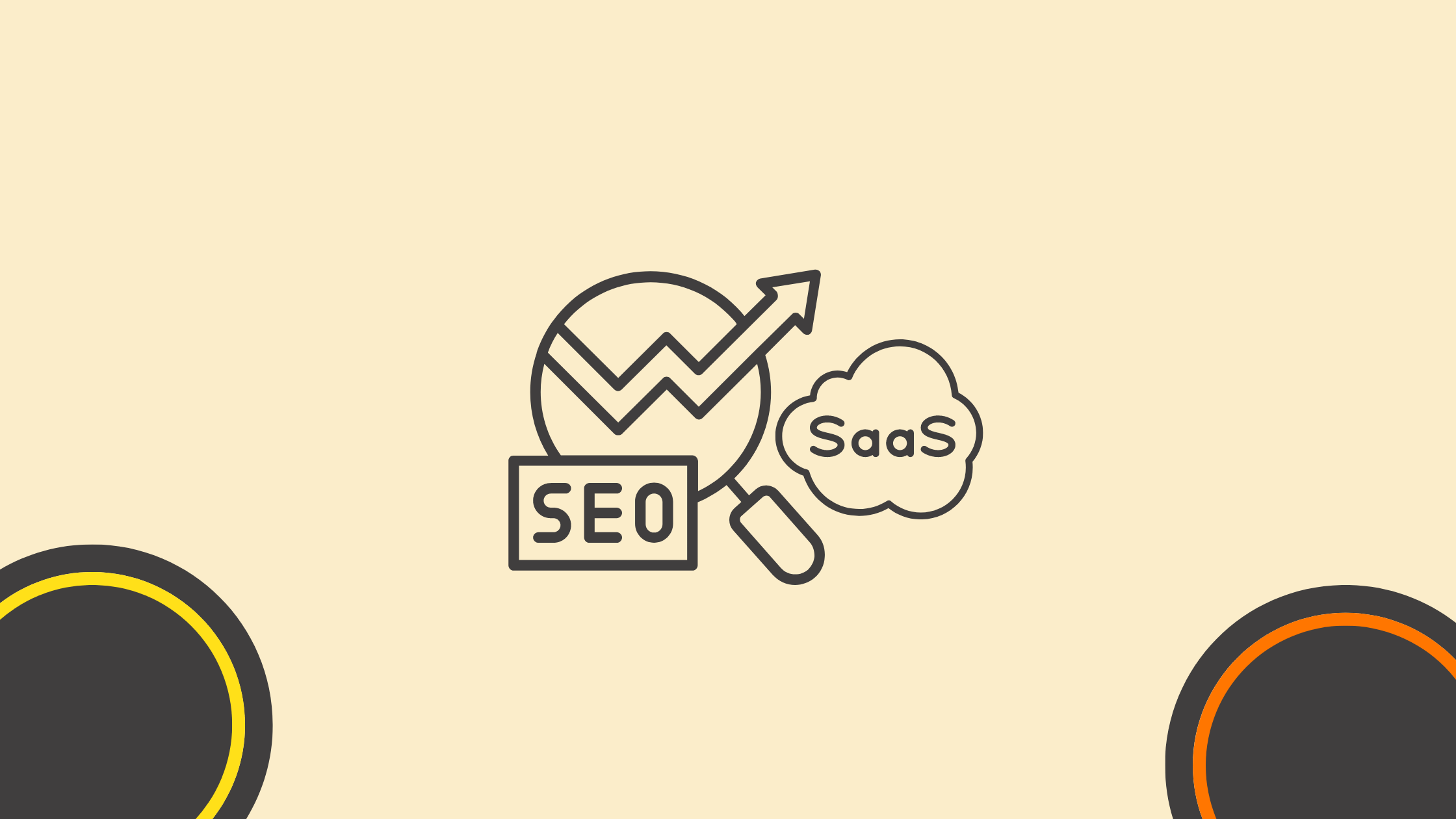What Every SaaS Founder Should Know About SEO
SaaS SEO is a game-changer. How can aspiring SaaS founders ensure they harness their full potential?
It’s about more than traffic. A well-executed SaaS SEO strategy not only drives visibility but also builds a lasting presence in a competitive market. By embracing best practices and evolving with search engine algorithms, founders can create a foundation for sustained growth, setting the stage for scaling operations and achieving long-term success.
Chapters
Understanding the Basics of SEO for SaaS

To thrive in today’s digital landscape, understanding SEO is paramount for SaaS founders.
When it comes to SaaS, specific keywords related to software-as-a-service drive substantial traffic, enhancing their visibility and expanding their market reach. They must leverage these keywords strategically by incorporating them organically into their content, titles, and meta descriptions.
What is SEO and Why Does It Matter for SaaS?
SEO, or Search Engine Optimization, is a method of improving online visibility by optimizing content. Specifically for SaaS companies, this translates into heightened awareness and a larger customer base.
Leveraging SaaS SEO can position a company ahead of its competition, leading to greater user engagement. This can ultimately drive significant growth and encourage sustainable success.
For SaaS founders, mastering SEO involves more than understanding keywords. It’s about creating valuable, optimized content that aligns with user intent, enhancing both discovery and conversion rates. This strategic focus can pave the way for scaling the venture and achieving long-term goals.
Key Differences Between SEO for SaaS vs. Other Industries
SEO for SaaS differs significantly from other industries due to the unique challenges and opportunities inherent to the software sphere.
Here’s a breakdown of the key differences:
- Customer Journey Complexity: SaaS purchase cycles are generally more complex, requiring multi-touchpoint engagements compared to simpler, transactional industries.
- Technical Content Requirements: Creating SEO content for SaaS often requires deep technical knowledge, distinguishing it from more generic SEO strategies.
- Conversion Metrics: Success in SaaS SEO is often measured by sign-ups, trials, or demos, rather than immediate sales.
- Keyword Strategies: SaaS companies must focus on long-tail keywords and niche topics to capture their target audience’s specific queries.
- Content Types and Format: The emphasis is on creating educational content like ebooks, case studies, and webinars to generate leads and build authority.
Keyword Research and Its Importance
Keyword research is fundamental to SaaS SEO, a cornerstone of any successful digital marketing strategy. Identifying and targeting the right keywords ensures that the content gets in front of the ideal audience, driving organic traffic and visibility.
By pinpointing relevant keywords in a SaaS niche, founders can better understand the search intent and behavior of their audience. This not only aids in content creation but also informs other marketing efforts. Incorporating insights from keyword research enables SaaS companies to rank higher on search engines.
How to Identify the Right Keywords for Your SaaS Business

Before diving into keyword research, founders must understand their audience and what problems their software aims to solve. For instance, by analyzing existing customer data or conducting surveys, founders can uncover the language, terms, and phrases that potential customers use when searching for solutions.
Additionally, leveraging tools like Google Keyword Planner, Ahrefs, or SEMrush can offer invaluable insights. These platforms provide data on search volume, competition, and keyword difficulty, enabling SaaS founders to prioritize terms that offer the best balance between relevance and attainability.
The goal is to identify keywords that not only attract traffic but also demonstrate high intent and conversion potential. This strategic approach transforms keyword research into an impactful element of a broader SaaS SEO plan, directing efforts toward measurable, sustainable growth.
The Role of Long-Tail Keywords in SaaS SEO
Long-tail keywords, though less frequently searched, offer higher conversion rates due to their specificity and relevance to niche audiences.
Here’s how long-tail keywords can significantly impact your SaaS SEO strategy:
- Increased Conversion Rates: Long-tail keywords often match the precise needs of potential customers, leading to higher engagement and conversion.
- Less Competition: These keywords face less competition, making it easier to rank higher in search engine results.
- Enhanced Audience Targeting: They help in attracting a highly targeted audience who are looking for specific solutions your SaaS product offers.
- Improved Content Relevance: By incorporating long-tail keywords, content becomes more relevant and valuable to users, reducing bounce rates.
Tools and Techniques for Effective Keyword Research
Effective keyword research is essential for any successful SaaS SEO strategy.
Here’s a list of tools and techniques that can enhance your keyword research process:
- Google Keyword Planner helps identify popular search terms related to the SaaS industry.
- Ahrefs and SEMrush provide in-depth analysis of competitors’ keywords.
- KWFinder excels in finding long-tail keywords that may yield higher conversion rates.
- AnswerThePublic uncovers questions potential users are asking, offering insightful keyword ideas.
On-Page SEO Essentials
First and foremost, a SaaS founder must ensure that each page has a clear and concise title tag, reflecting the primary keyword. These titles should be informative yet enticing, encouraging users to click through to the website.
Additionally, including meta descriptions that summarize the page’s content while naturally integrating keywords will aid in drawing user interest.
Equally important is the structuring of headers (H1, H2, H3) to organize content effectively. Headers improve readability and signal to search engines the hierarchy of information, thereby enhancing the page’s SEO.
Lastly, optimizing images with descriptive alt text and ensuring fast loading times will contribute significantly. These efforts will not only improve user experience but also play a crucial role in search engine ranking algorithms.
Technical SEO Considerations
Among the myriad aspects that need attention, the site’s crawlability and indexability top the list. Ensuring that search engines can easily navigate and index their web pages involves proper utilization of robots.txt files and creating an updated XML sitemap.
Implementing secure HTTPS, reducing server response times, and leveraging browser caching can significantly bolster site performance. These measures directly influence SEO metrics by improving overall user experience and reducing bounce rates.
They should regularly audit their website to identify and rectify issues such as broken links, duplicate content, and incorrect redirects. Using advanced tools like Google Search Console can help monitor and maintain their site’s health, ensuring it meets evolving SEO standards.
Off-Page SEO Techniques
Off-page SEO techniques are essential for amplifying a SaaS company’s online presence.
Here’s how to effectively implement these strategies:
- Leverage Backlinks: Secure high-quality inbound links from authoritative websites, as backlinks serve as credible endorsements, signaling search engines about the site’s authority and trustworthiness.
- Content Marketing and Guest Blogging: Create valuable content that can be shared on other platforms, engaging in guest blogging and forming partnerships with influencers to enhance your backlink profile and visibility.
- Social Media Optimization: Actively engage on diverse social media platforms to foster a community, drive more traffic, and amplify your brand’s reach and influence.
- Online Reputation Management: Encourage positive reviews from satisfied customers while responding constructively to feedback to build credibility and trust.
Choosing the Right SEO Partner
Choosing the right SEO partner can significantly impact your SaaS company’s success. It requires careful evaluation and strategic decision-making. Their ability to understand SaaS-specific needs is crucial in this process.
When selecting the best SaaS SEO agency, consider their expertise in the SaaS sector, their use of up-to-date SEO techniques, and their history of driving growth for similar businesses. A proficient partner will blend technical expertise, content strategy, and innovative thinking.
Review case studies, ask for references, and ensure they can tailor strategies to your unique goals and challenges. Invest in a relationship that promises long-term value and shared aspirations.
Conclusion
Mastering the intricacies of SaaS SEO can propel a startup toward significant growth. Careful execution of SEO principles fosters visibility.
By investing in robust SEO strategies and partnerships, founders can ensure their platforms resonate in search engines, attract the right audience, and ultimately, thrive in their respective sectors. Aim high, adapt swiftly, and let SEO be the compass guiding your SaaS enterprise to new heights.
Other Interesting Articles
-
- AI LinkedIn Post Generator
- Gardening YouTube Video Idea Examples
- AI Agents for Gardening Companies
- Top AI Art Styles
- Pest Control YouTube Video Idea Examples
- Automotive Social Media Content Ideas
- AI Agent for Plumbing Business
- Plumber YouTube Video Idea Examples
- AI Agents for Pest Control Companies
- Electrician YouTube Video Idea Examples
- AI Agent for Electricians
- How Pest Control Companies Can Get More Leads
- AI Google Ads for Home Services
Master the Art of Video Marketing
AI-Powered Tools to Ideate, Optimize, and Amplify!
- Spark Creativity: Unleash the most effective video ideas, scripts, and engaging hooks with our AI Generators.
- Optimize Instantly: Elevate your YouTube presence by optimizing video Titles, Descriptions, and Tags in seconds.
- Amplify Your Reach: Effortlessly craft social media, email, and ad copy to maximize your video’s impact.